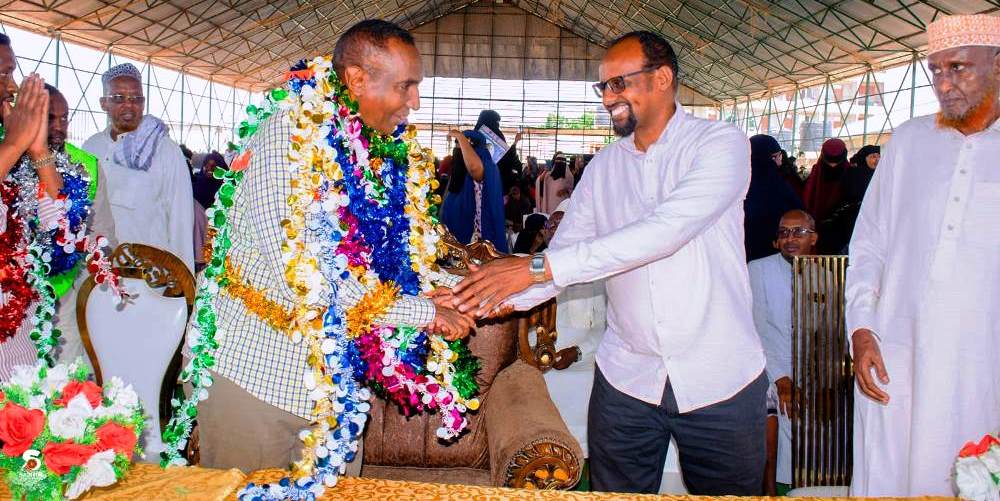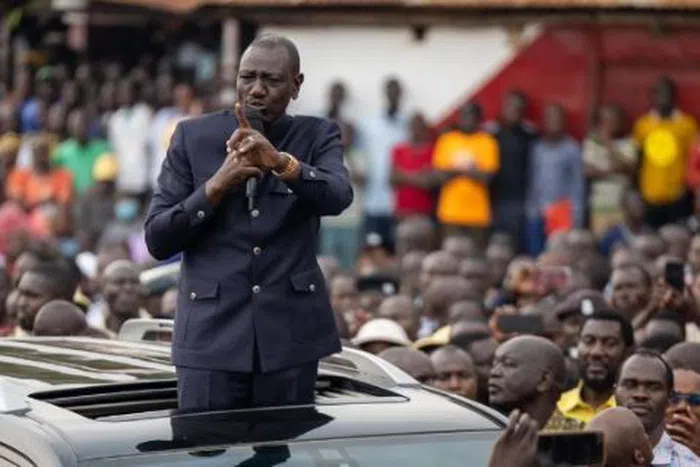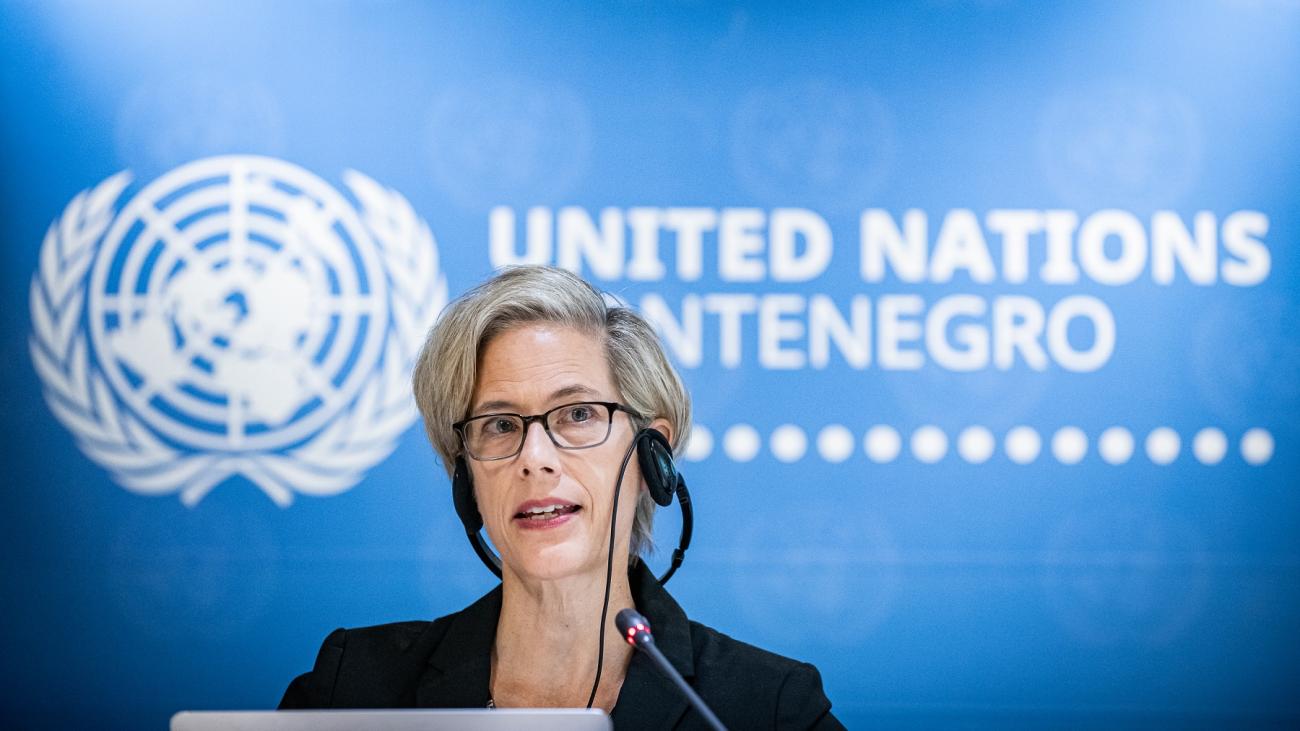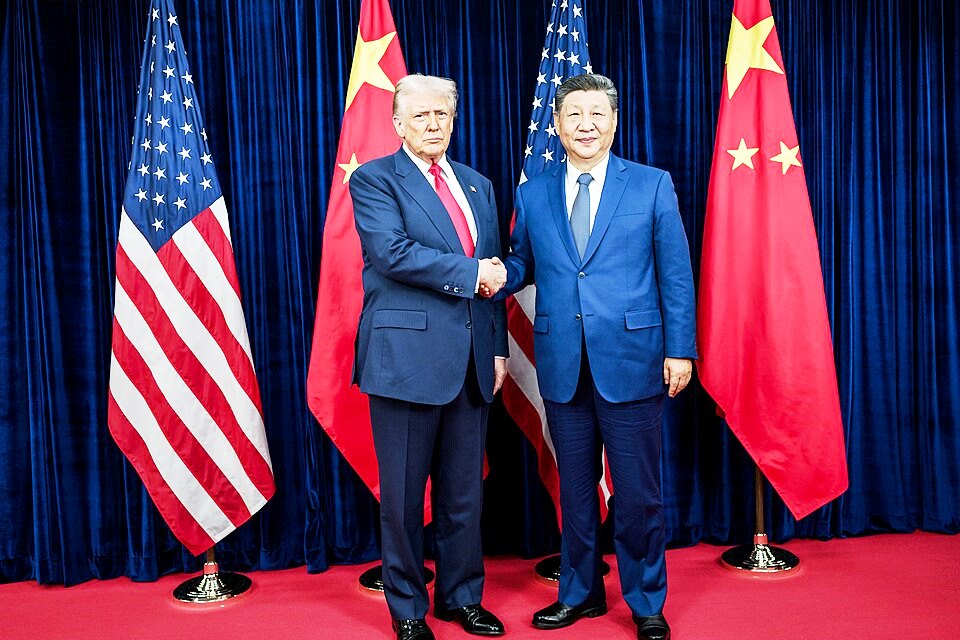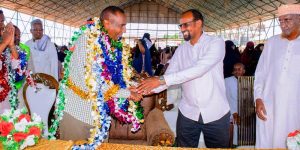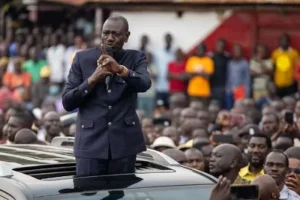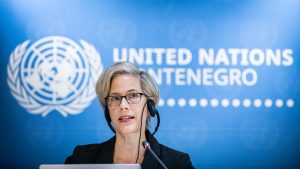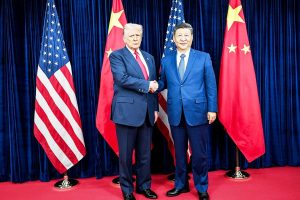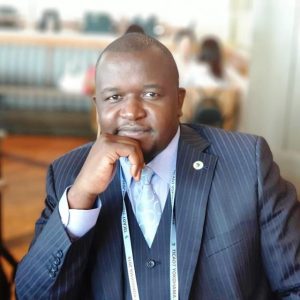Babu Owino at the funeral of slain blogger and teacher Albert Ojwang. PHOTO/Facebook
By CLEOPHAS ODERA
In the ever-shifting Kenya’s political arena, moments of transition often come with turbulence, suspicion, and bold re-alignments. The sudden and sweeping rise of Paul Ongili Owino, popularly known as Babu Owino, has brought all these forces into motion.
From the humble beginnings of Nyalenda slums in Kisumu to the national limelight as Embakasi East MP and now a newly admitted advocate of the High Court, Babu is no longer just a rabble-rouser or a radical youth leader, he is becoming a strategic and smooth operator in the Raila Odinga-led ODM party and a pivotal figure in Kenya’s evolving political order.
What makes Babu’s rise particularly significant is not merely his personal journey, but what it reveals about the current moment in Kenya’s political history.
His growing clout has not only rattled the political aristocracy in Luo Nyanza but has also sparked a deeper conversation about the future of opposition politics, generational leadership, and the moral mandate of speaking for the people, especially in a season where Gen Z activism has become the heartbeat of a disillusioned nation.
Babu’s political identity is deeply shaped by his past. Born to a single mother in one of Kisumu’s poorest neighborhoods, his early life was marked by hardship, resilience, and an acute awareness of injustice.
His mother brewed and sold chang’aa to feed her children, often facing police harassment, a painful experience that left an indelible mark on Babu’s conscience.
These formative experiences gave birth to a political spirit rooted in resistance. His ascent through academic and political institutions; from a high-performing student to SONU chair at the University of Nairobi, mirrored the aspirations of many youths from marginalized communities who view education and activism as the only legitimate avenues to power.
His story resonates deeply with millions of Kenyans who navigate poverty, police brutality, and systemic exclusion daily.
But what sets Babu apart is not just his past, but how he has weaponised it to shape his present. His recent admission to the bar symbolises more than personal achievement; it represents the intellectual maturation of a previously impulsive politician into a calculated strategist with tools to fight on both political and legal battlegrounds.

Babu Owino in court. PHOTO/Facebook
The 2024 anti-Finance Bill protests catalysed a new generation of Kenyan political consciousness. What began as online rants transformed into mass street protests powered by Gen Z; the young, urban, digital-first, and fearless activism.
The discontent was not simply about taxes; it was a cry against betrayal, bad governance, and an unresponsive state. It is here that Babu’s relevance reached a new peak.
While many ODM leaders maintained a cautious or ambiguous stance, Babu threw his weight fully behind the youth. He was visible at protests, vocal in Parliament, and active on social media, framing the struggle not just as a policy disagreement, but a moral revolution.
His criticism of ODM’s broad-based cooperation with President Ruto’s UDA was unflinching, branding it a “betrayal of the struggle.” In that moment, Babu ceased being just an MP, he became a symbol of generational defiance.
And that is why the Luo political elite, many of whom are aging or strategically tethered to Raila’s patronage, are increasingly anxious. They understand Kenyan politics’ unwritten rule: the masses follow the bold, not the obedient.
By boldly confronting not only the government but his own party’s questionable silence, Babu is defining himself not as an ODM foot soldier, but as a potential ODM re-founder.
The Luo community’s political identity has long been synonymous with Raila. For over four decades, Baba has carried the hopes, fears, and dreams of a region often politically marginalised but culturally defiant.
But Raila’s recent decisions, including embracing a working arrangement with Ruto’s UDA, sidelining vocal young MPs, and promoting individuals seen as loyalists rather than reformers, have stirred dissatisfaction.
The cracks are visible. Raila’s call for a Saba Saba commemoration was largely ignored, a symbolic moment signaling waning grassroots control. In contrast, Babu’s every public appearance, such as during the funeral of teacher-blogger Albert Ojwang in Homa Bay, is met with near-reverent excitement. The reaction is not mere coincidence, it is a sign of political hunger. The community, it seems, is searching for a new warrior.

Babu Owino after being sworn-in as an advocate of the High Court. PHOTO/Facebook.
This is where fears of history repeating itself emerge. Some Raila allies now accuse Babu of playing the role of Tom Mboya, the brilliant, youthful, and pan-national Luo leader who was widely believed to be used by the Jomo Kenyatta regime to undermine Raila’s father Jaramogi Oginga Odinga.
The mention of Mboya is not casual. It evokes memories of betrayal, murder, and division. But it also reflects the fear of a repeat: another Luo son rising too fast, too boldly, and outside Raila’s orbit.
Unlike many politicians who thrive on personality cults, Babu is building a political platform that resonates with policy and lived experiences. His critiques of taxation, unemployment, corruption, and youth exclusion are not abstract, they are rooted in personal history and professional conviction.
His pro-bono legal work for petty offenders and government critics mainly Gen Zs, his scholarship programs, and his constant presence in Nairobi’s informal settlements signal a grounded leadership model. And just like Mboya who made Nairobi his political base, Babu has made Embakasi East his political bedroom.
In many ways, Babu embodies the aspirations of the “Third Liberation,” much like the Second Liberation heroes of the 1990s who were then known as Young Turks that included Raila, Governor James Orengo, Prof Kivutha Kibwana, lawyer Gitobu Imanyara, Kijana Wamalwa, Kiraitu Murungu among others.
He is neither tethered to ethnic politics nor beholden to elite interests. That freedom makes him dangerous to both the ruling party and the traditional opposition. His currency is not only his oratory or social media influence, it is his authenticity.
It is important to note that Babu’s popularity among Gen Z and urban youth is not merely emotional. It is ideological. He articulates a vision of a Kenya where hard work pays, where justice is not a luxury, and where youth are not treated as a voting machines but as legitimate co-authors of the national story.
The political equation facing Raila and ODM is delicate. On one hand, there is a need to preserve Raila’s towering legacy and the historical significance of the party.
On the other, there is an undeniable generational pressure for radical renewal. Babu straddles both worlds. He respects Raila, but is also not afraid to criticise him. He is a product of ODM, yet he is not captive to it.

Babu Owino talking to a suspect in court. PHOTO/Facebook
This duality presents a choice for ODM: evolve or implode. If ODM fails to manage its succession politics soberly, it risks alienating the youth who now see figures like Babu as the true voice of the opposition.
The tragedy of Kenya’s opposition politics has always been the inability to institutionalise transitions. ODM now faces that test; and Babu is the catalyst.
Whether or not he ultimately becomes the party’s torchbearer, Babu has already reshaped the political terrain not just in Nairobi, but also in Luo Nyanza. He has expanded the conversation, redefined youth participation, and reclaimed protest politics from the grip of elite inertia.
Today he is under pressure to make a massive meet-the-people tours in Kisumu, Migori and Siaya counties following his tumultuous reception in Homa bay County during the burial of Ojwang.
It has to be noted that Kenya is on the cusp of a profound political transformation. The old formulas no longer work. Gen Z is no longer apathetic. Ethnic kingpins no longer control monolithic voting blocs. And parties like ODM must now make room for new voices, or risk irrelevance.
Babu, once dismissed as a loud-mouthed radical, is emerging as a thoughtful, principled, and formidable political force. His rise is not accidental; it is the result of resilience, strategic rebranding, and genuine public service. While comparisons with Tom Mboya evoke painful memories, they also affirm the gravity of his influence.
For now, Babu is not just the MP for Embakasi East. He is a voice of conscience, a mirror to Raila’s legacy, and potentially, a bridge to Kenya’s next generation of leadership. How he navigates this path, and how Raila and ODM respond, will shape the soul of the nation’s politics for years to come.
If history is written by those who dare when others hesitate, then Babu Owino may well be scripting the next chapter of Kenya’s political story, with bold ink, sharp intellect, and unrelenting conviction.
For now, Babu aspires to become the Governor of Nairobi; and as the saying goes, dreams are the seedlings of reality. Only time will tell.
